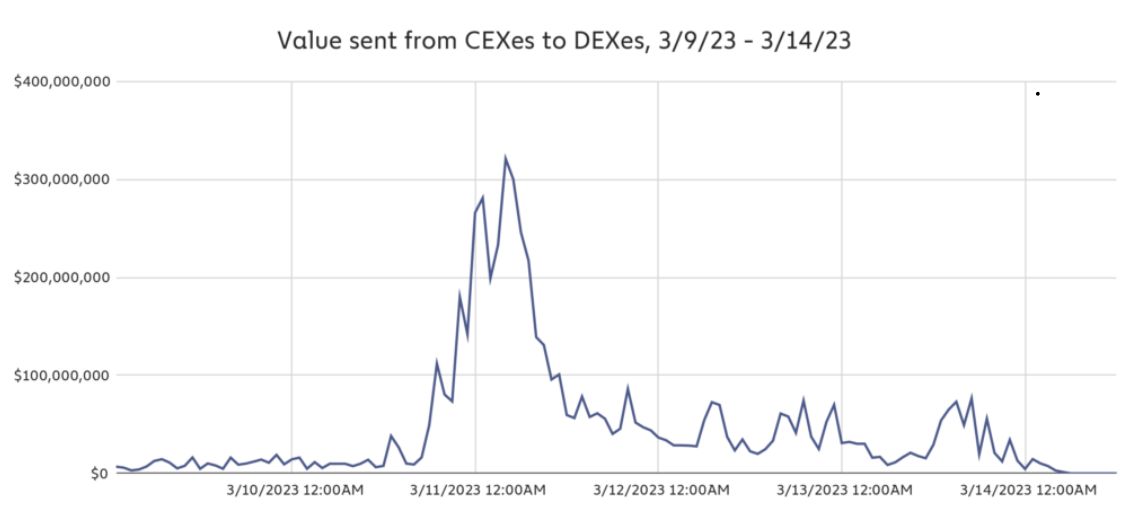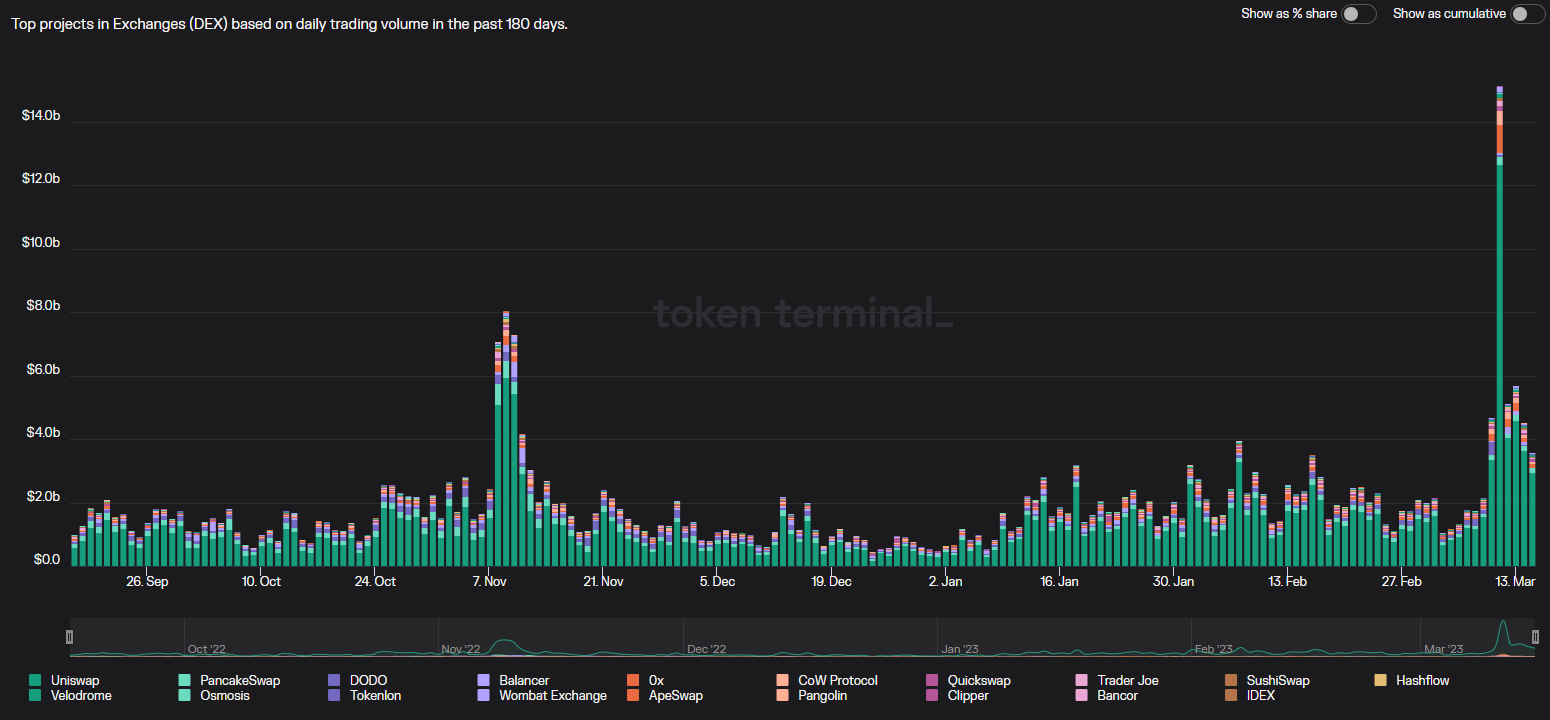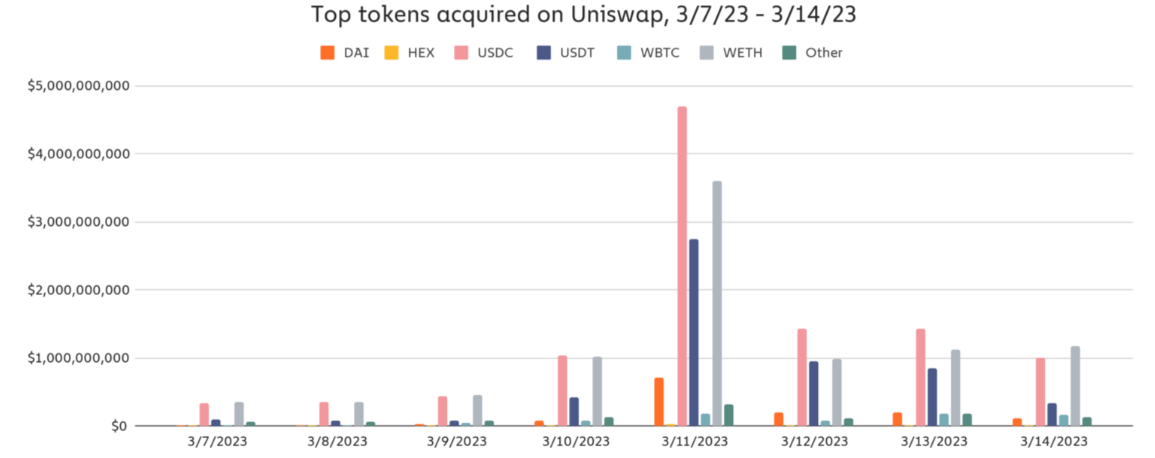
Crypto users turned to DEXs, loaded up on USDC after Silicon Valley Bank crash

The collapse of FTX led to a similar exodus from centralized exchanges, as users worried they may lose access to funds during crises.
The collapse of Silicon Valley Bank saw investors loading their bags with USD Coin (USDC), along with an exodus of funds from centralized exchanges (CEXs) to decentralized exchanges (DEXs).
Outflows from centralized exchanges often spike when the markets are in turmoil, blockchain analysis firm Chainalysis said in a March 16 blog post, as users are likely worried about losing access to their funds when exchanges go down.

The Chainalysis data shows that hourly outflows from CEXs to DEXs spiked to over $300 million on March 11, soon after SVB was shut down by a Californiaregulator.
A similar phenomenon was observed during the collapse of cryptocurrency exchange FTX last year, amid fears that the contagion could spread to other crypto firms.
However, data from the blockchain analytics platform Token Terminal suggests that the surge in daily trading volumes for large DEXs was short-lived in both cases.

USDC was identified as one of the top assets being moved to DEXs, which Chainalysis said was unsurprising given that USDC depegged after stablecoin issuer Circle announced it had $3.3 billion in reserves stuck on SVB, prompting many CEXs like Coinbase to temporarily halt USDC trading.
Related: Circle clears ‘substantially all’ minting and redemption backlog for USDC
What was surprising, Chainalysis noted, was the surge in USDC acquisitions on large DEXs such as Curve3pool and Uniswap. “Several assets saw large spikes in user acquisition, but none more than USDC,” the blockchain analysis firm wrote.

Chainalysis theorized that this was due to confidence in the stablecoin, with some crypto users loading up on USDC while it was relatively cheap and betting that it would regain its peg — which it did on March 13 according to CoinMarketCap.

Go to Source
Author: Luke Huigsloot









